The Redbreast hh-3 Read online
Page 7
'Thank you for being able to come at such short notice,' he began. 'The confidential nature of this meeting does not need to be emphasised, of course, but I will do so anyway since not everyone has had so much experience of the business in hand.'
He cast a swift glance at everyone except Rakel, making it clear that the message was intended for her. Then he turned towards Anne Storksen.
'By the way, how is your man?'
The Chief Constable looked at him in some confusion. 'Your police man?' Brandhaug hastened to say. 'Hole, isn't that what he's called?'
She nodded to Moller, who had to clear his throat twice before he got going.
'Fine, under the circumstances. He's shaken of course. But… OK.' He shrugged to show that there wasn't a lot more to say.
Brandhaug raised a recently plucked eyebrow.
'Not so shaken that there might be the risk of a leak, I trust?'
'Erm,' Moller said. He saw the Chief Constable quickly turn towards him with a sidelong glance. I don't believe so. He's aware of the delicate nature of the matter. And of course he has been sworn to secrecy about what happened.'
'The same is true for the other police officers involved at the scene,' Anne Storksen added with alacrity.
'Let's hope this is under control then,' Brandhaug said. 'I'll just give you a brief update on the situation. I have just had a long conversation with the American ambassador and I believe I may say that we have agreed on the most important points in this tragic matter.'
He looked at each of them in turn. They gazed at him in an atmosphere of tense expectation. Waited for what he, Bernt Brandhaug, could tell them. The despondency he had felt a few seconds before seemed to have been erased.
'The ambassador was able to tell me that the Secret Service agent whom your man',-he motioned towards Moller and the Chief Constable-'shot at the toll barrier is in a stable condition and he is off the danger list. His dorsal vertebrae are damaged and there is internal haemorrhaging, but the bulletproof vest saved him. I regret that we were unable to discover this information earlier, but for understandable reasons we have attempted to keep all communication about this affair to a minimum. Only the most essential details have been exchanged between a small number of involved parties.'
'Where is he?' Moller asked.
'Strictly speaking, you don't need to know that, Inspector Moller.'
He looked at Moller, whose face had assumed a strange expression. There was an oppressive silence in the room for a second. It was always a little embarrassing when someone had to be reminded that they were not allowed to know more than they needed for their job. Brandhaug smiled and spread his hands in regret as if to say: I can well understand you asking, but that's the way it is. Moller nodded and looked down at the table.
'OK,' Brandhaug said. 'I can tell you this much-after the operation he was flown to a military hospital in Germany.'
'Right.' Moller scratched the back of his neck. 'Erm…' Brandhaug waited.
'I assume it's fine to let Hole know this? That the SS agent is recovering, I mean. It will make the situation… um… easier for him.'
Brandhaug looked at Moller. He had difficulty working out the head of Crime Squad.
'That's fine.'
'What was it that you and the ambassador agreed on?' It was Rakel. 'I'm coming to that,' Brandhaug said gently. Actually it was his next point, but he disliked being interrupted in this way. 'First of all, I would like to commend Moller and the Oslo police on their quick appraisal at the scene. If the reports are correct, it took a mere twelve minutes for the agent to receive professional medical attention.'
'Hole and his colleague, Ellen Gjelten, drove him to Aker Hospital,' Anne Storksen said.
'Admirably quick reactions,' Brandhaug said. 'And that is a view which is shared by the American ambassador.'
Moller and the Chief Constable exchanged glances.
'Furthermore, the ambassador has spoken to the Secret Service and there is no question of instituting proceedings from the American side. Naturally'
'Naturally,' Meirik chimed in.
'We also agreed that the error resided in the main with the Americans. The agent in the toll booth should never have been there. That is, it was permitted, but the Norwegian liaison officer at the scene should have been notified. The Norwegian policeman who was at the post at which the agent came into the zone, and who should have-sorry, could have-informed the liaison officer, reacted only to the ID the agent showed him. The standing orders were that Secret Service agents had access to all secure areas, and the policeman therefore saw no reason to report it further. In retrospect, we may say that he ought to have done.'
He looked at Anne Storksen, who gave no indication that she would protest.
'The good news is that at this juncture it does not appear that anything has come out. I have not, however, called this meeting to discuss what we should do as a best-case scenario, which is precious little more than sit tight. I presume we do not need to consider such a thing. It would be absurdly naive to believe that this shooting incident will not leak out sooner or later.'
Bernt Brandhaug cupped his palms up and down as if to bundle the sentences into suitable sound bites.
'In addition to the twenty-odd people from POT, the FO and the co-ordination group who know about this matter, there were approximately fifteen police witnesses at the toll barrier. I do not wish to say a bad word about any of them. I am sure they will, on the whole, observe the customary pledges of secrecy. Nevertheless, they are ordinary police officers without any experience of the degree of secrecy which is necessary in these circumstances. There are, furthermore, employees at the Rikshospital, the airline, the toll company Fjellinje AS and the Plaza Hotel, who all, to a greater or lesser degree, have reason to be suspicious about what happened. There is no guarantee either that the motorcade was not being followed through binoculars from one of the surrounding buildings. One word from anyone who had anything to do with this and…' He blew out his cheeks to represent an explosion.
It went quiet around the table until Moller cleared his throat.
And why is it so… um… dangerous if it comes out?'
Brandhaug nodded to demonstrate that this was not the most stupid question he had heard, which immediately gave Moller the intended sense that this was exactly what it was.
'The United States of America is more than just an ally,' Brandhaug began with an imperceptible smile. He said it with the same intonation that you use to explain to a non-Norwegian that Norway has a king and that the capital is Oslo.
'In 1920 Norway was one of Europe's poorest countries and probably still would be, had it not been for America's help. Forget politicians' rhetoric. Emigration; Marshall Aid, Elvis and the financing of the oil adventure have turned Norway into probably one of the most pro-American countries in the world. Those of us sitting here have worked for years to attain the positions we have in our careers today. But should it come to the ears of our politicians that anyone in this room is responsible for endangering the life of the President…'
Brandhaug left the rest of the sentence hanging in the air as he cast his eyes around the table.
'Fortunately for us,' he said, 'the Americans would rather concede a glitch with one of their Secret Service agents than concede a fundamental lack of co-operation with one of their closest allies.'
'That means', said Rakel without glancing up from the pad in front of her,'… that we do not need a Norwegian scapegoat.' Then she raised her eyes and looked directly at Bernt Brandhaug. 'Quite the contrary. We need a Norwegian hero, don't we?'
Brandhaug rested his gaze on her with a mixture of surprise and interest. Surprise because she had known so quickly where he was heading, and interest because he had realised she was definitely someone to be reckoned with.
'That's correct. The day it leaks out that a Norwegian policeman has shot a Secret Service agent, we have to have our version of events straight,' he said. 'And our version must be that nothing u
ntoward happened on our side. Our liaison officer at the scene acted according to instructions and the blame lies solely with the Secret Service agent. This is a version both we and the Americans can live with. The challenge is getting the media to buy it. And that is why -'
'- we need a hero,' the Chief Constable added.
'Excuse me,' Moller said. 'Am I the only person here who doesn't get the nub of this?' He made a relatively unsuccessful attempt to add a brief chuckle.
'The officer showed presence of mind in what was a potentially threatening situation for the President,' Brandhaug said. 'If the person in the booth had been an assassin, which he was obliged to assume, in line with instructions laid down for this particular scenario, he would have saved the President's life. The fact that the individual turned out not to be an assassin doesn't change anything.'
'That's right,' Anne Storksen said. 'In such situations instructions take precedence over personal assessment.'
Meirik didn't say anything, but nodded in assent.
'Good,' Brandhaug said. 'The "nub", as you call it, Bjarne, is to convince the press, our superiors and everyone who has had any dealings with this case that we have had not a second's doubt that our liaison officer acted correctly. The "nub" is that we must behave as if to all practical intents and purposes he performed an heroic deed.'
Brandhaug could see Moller's consternation.
'Were we not to reward the officer, we would already have half-admitted that he made an error of judgment in shooting the agent, and, accordingly, that the security arrangements during the President's visit were wanting.'
Nods of assent around the table.
'Ergo…' Brandhaug said. He loved the word. It was a word clothed in armour, almost invincible because it called upon the authority of logic. From this it follows that.
'Ergo, we give him a medal?' It was Rakel again.
Brandhaug felt a twinge of irritation. The way she said 'medal'. As if they were writing the manuscript of a comedy in which all sorts of amusing suggestions were pounced on with enthusiasm. That his presentation was a comedy.
'No,' he said slowly, with emphasis. 'Not a medal. Medals and distinctions do not have the gravitas. Nor do they give us the credibility we are after.' He leaned back in the chair, his hands behind his head. 'Let's promote the guy. Let's make him an inspector.'
A long silence ensued.
'Inspector?' Bjarne Moller stared at Brandhaug in disbelief. 'For shooting a Secret Service agent?'
'It may sound a little macabre, but give it some thought.'
'It's…' Moller blinked and seemed to be on the point of saying a great deal, but he chose to keep his mouth shut.
'He does not have to perform the same duties that usually pertain to the rank of inspector,' Brandhaug heard the Chief Constable say. The words came with some hesitation. As if threading cotton through the eye of a needle.
'We have given this a little thought too, Anne,' he answered with gentle emphasis on her name. It was the first time he had used her Christian name. One of her eyebrows gave a slight jerk, but otherwise he didn't see anything to suggest that she objected. He continued: 'The problem is that if all the colleagues of this trigger-happy liaison officer of yours consider the promotion conspicuous and start to think of the tide as window-dressing, then we haven't got very far. That is, we haven't got anywhere at all. If they suspect a cover-up, rumours will immediately begin to fly, and we will give the impression that we have consciously tried to hide the fact that we, you, this policeman, committed a blunder. In other words, we have to give him a post where it seems reasonable that no one can keep too close an eye on what he is actually doing. Put another way, a promotion combined with a move to a screened operation.'
'A screened operation. A free hand.' Rakel gave a wry smile. 'Sounds like you're thinking of sending him over to us.'
'What do you think, Kurt?' Brandhaug said.
Kurt Meirik scratched behind his ear while chuckling quietly.
'Yes,' he said. 'We can always find a home for an inspector, I reckon.'
Brandhaug bowed. 'That would be a great help.'
'Yes, we have to help each other when we can.'
'Terrific,' Brandhaug said with a broad smile and a glance at the clock on the wall to indicate that the meeting was over. Chairs scraped.
15
Sanksthanshaugen. 4 November 1999.
Over the speakers, Prince was partying like it was 1999.
Ellen looked over at Tom Waaler, who had just that minute shoved a cassette into the machine and turned up the volume so loud that the bass was making the dashboard vibrate. Prince's shrill falsetto pierced her eardrums.
'Groovy or what?' Tom shouted above the music. Ellen didn't really want to offend him, so she simply shook her head. Not that she had any preconceptions that Tom Waaler was easy to offend, but she had decided not to go against the grain for as long as it was possible. She hoped until the pairing of Tom Waaler with Ellen Gjelten came to an end. Bjarne Moller, the head of their section, had definitely said that the pairing was only provisional. Everyone knew that Tom would get the new inspector's post in the spring.
'Black poof,' Tom shouted. 'Too much.'
Ellen didn't answer. It was raining so hard that, even with the wipers on full speed, the water lay like a soft filter on the windscreen and made the buildings in Ullevalsveien look like soft toy houses undulating to and fro. Moller had sent them off this morning to find Harry. They had already rung his flat in Sofies gate and established that he was not at home. Or he didn't want to open up. Or he wasn't capable of opening up. Ellen feared the worst. She watched people hurrying along the pavement. They had distorted, bizarre features too, like in crazy mirrors at the fair.
'Turn left here and pull over outside Schroder's,' she said. 'You can wait in the car and I'll go in.'
'Fine with me,' Waaler said. 'Drunks are the worst.'
She glanced at him from the side, but his expression didn't betray whether he meant Schroder's morning clientele in general or Harry in particular. He pulled into the bus stop outside and as Ellen got out she saw that a Kaffebrenneri had opened on the other side of the street. Or perhaps it had been there for ages and she simply hadn't noticed it. On the bar stools along the windows young people in roll-necked sweaters sat reading foreign newspapers or staring out into the rain, holding large white coffee cups between their hands, presumably wondering if they had chosen the right subject at university, the right designer sofa, the right partner, the right football club or the right European town.
In the doorway to Schroder's she almost bumped into a man wearing an Icelandic sweater. The alcohol had washed nearly all the blue from his irises; his hands were as big as frying pans and black with dirt. Ellen caught the sweet smell of sweat and stale alcohol as he sailed past. Inside, there was a slow morning atmosphere. Only four of the tables were occupied. Ellen had been there before, a long time ago, and as far as she could determine nothing had changed. Large pictures of Oslo in centuries past hung on the walls, and the brown paintwork and the faux glass ceiling in the middle gave it a little of the feel of an English pub. Very little, if you were absolutely honest. The plastic tables and benches made it look more like the smokers' saloon bar on a ferry along the More coast. At the back of the room a waitress wearing an apron was leaning against a counter and smoking while keeping half an eye on Ellen. Harry was sitting right in the corner near the window with his head down over the table. A half-empty beer glass in front of him.
'Hi,' Ellen said, taking a seat opposite him.
Harry looked up and nodded. As if he had been waiting exclusively for her. His head slipped down again.
'We've been trying to get hold of you. We rang your flat.'
'Was I at home?' he said in a flat tone, no smile.
'I don't know. Are you at home, Harry?' She indicated the glass. He shrugged.
'He's going to live,' she said.
'I heard. Moller left a message on my answerphone.' His dicti
on was surprisingly clear. 'He didn't say how badly injured he was. Plenty of nerves and stuff in the back, aren't there?'
He cocked his head, but Ellen didn't answer.
'Perhaps he'll only be paralysed?' Harry said, tapping his now-empty glass. 'Skal.'
'Your sick leave runs out tomorrow,' she said. 'Then we'll be expecting to see you back on the job.'
He raised his head. 'Am I on sick leave?'
Ellen pushed a little plastic folder across the table. The back of a pink piece of paper could be seen inside.
'I've been talking to Moller. And Dr Aune. Take this copy of the sick leave form. Moller said it was normal to have a few days off to recover after a shooting incident in the line of duty. Come in tomorrow.'
His gaze shifted to the window with its coloured, uneven glass. Presumably for reasons of discretion, so that people inside could not be seen from the outside. The exact opposite of Kaffebrenneri, Ellen thought.
'Well? Are you coming?'
'Well,' he looked at her with the same glazed eyes she remembered from the mornings after he returned from Bangkok, 'I wouldn't bet on it.'
'Come anyway. There are a couple of amusing surprises waiting for you.'
'Surprises?' Harry laughed softly. 'I wonder what that could be? Early retirement? Honourable dismissal? Will the President give me the Purple Heart?'
He raised his head enough for Ellen to see his bloodshot eyes. She sighed and turned towards the window. Behind the rough glass, shapeless cars slid by, as in a psychedelic film.
'Why do you do this to yourself, Harry? You know, I know, everyone knows it wasn't your fault! Even the Secret Service admits it was their fault we weren't informed. And that we-you-acted properly.'

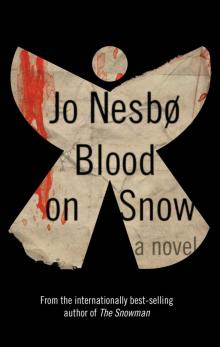 Blood on Snow: A novel
Blood on Snow: A novel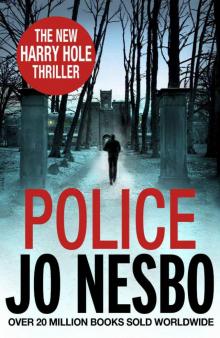 Police: A Harry Hole thriller (Oslo Sequence 8)
Police: A Harry Hole thriller (Oslo Sequence 8) Doctor Proctor's Fart Powder: The Great Gold Robbery
Doctor Proctor's Fart Powder: The Great Gold Robbery Bubble in the Bathtub
Bubble in the Bathtub Doctor Proctor's Fart Powder: Time-Travel Bath Bomb
Doctor Proctor's Fart Powder: Time-Travel Bath Bomb The Bat
The Bat Doctor Proctor's Fart Powder: The End of the World. Maybe.
Doctor Proctor's Fart Powder: The End of the World. Maybe. Silent (but Deadly) Night
Silent (but Deadly) Night Who Cut the Cheese?
Who Cut the Cheese? Headhunters
Headhunters The Jealousy Man and Other Stories
The Jealousy Man and Other Stories Harry Hole Mysteries 3-Book Bundle
Harry Hole Mysteries 3-Book Bundle The Thirst
The Thirst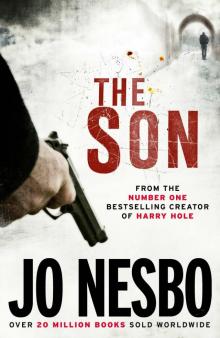 The Son
The Son The Redeemer
The Redeemer The Kingdom
The Kingdom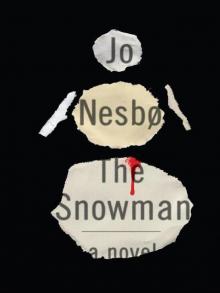 The Snowman
The Snowman The Redbreast
The Redbreast Phantom
Phantom Macbeth
Macbeth The Leopard
The Leopard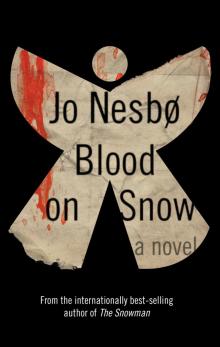 Blood on Snow
Blood on Snow Midnight Sun
Midnight Sun The Redbreast (Harry Hole)
The Redbreast (Harry Hole)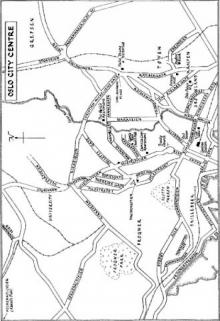 The Devil's Star
The Devil's Star Cockroaches
Cockroaches The Magical Fruit
The Magical Fruit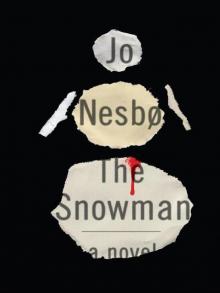 The Snowman: A Harry Hole Novel
The Snowman: A Harry Hole Novel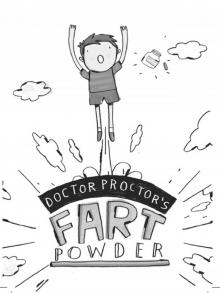 Doctor Proctor's Fart Powder
Doctor Proctor's Fart Powder The Cockroaches
The Cockroaches Knife
Knife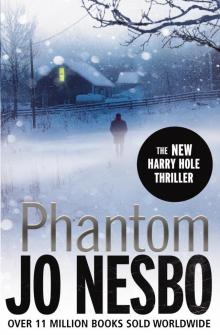 Phantom hh-9
Phantom hh-9 The Redbreast hh-3
The Redbreast hh-3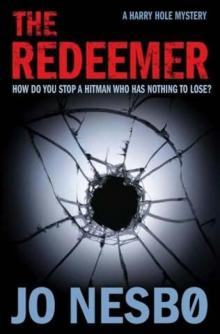 The Redeemer hh-6
The Redeemer hh-6 The Leopard hh-8
The Leopard hh-8 The Leopard: An Inspector Harry Hole Novel
The Leopard: An Inspector Harry Hole Novel The Great Gold Robbery
The Great Gold Robbery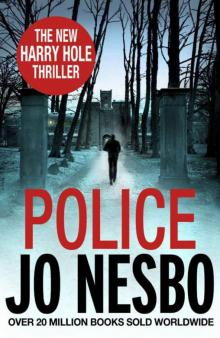 Police hh-10
Police hh-10 The End of the World. Maybe
The End of the World. Maybe The Thirst: Harry Hole 11
The Thirst: Harry Hole 11 Nemesis - Harry Hole 02
Nemesis - Harry Hole 02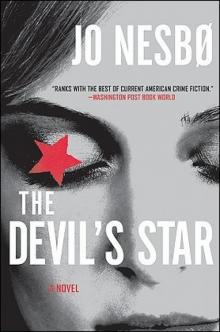 The Devil's star hh-5
The Devil's star hh-5 Time-Travel Bath Bomb
Time-Travel Bath Bomb